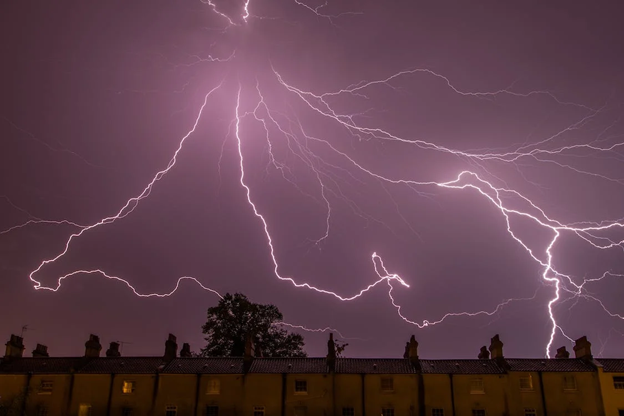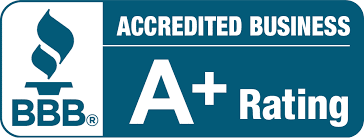Keeping the Lights on in Texas: Battery Backup vs Generator
In Texas, the weather can be as unpredictable as a rodeo bull. With extreme weather events and a growing demand on the power grid, ensuring your home stays powered during outages is more important than ever.
As solar power gains momentum in Texas, figuring which backup power source suits your needs—battery backup systems or generators—is a good one to ponder. This article will guide you through making an informed decision, balancing environmental consciousness with practicality and cost-effectiveness.
When Would You Need an Alternate Power Source?
In Texas, power outages can be triggered by various factors, from severe weather like hurricanes and tornadoes, grid overloads, to even maintenance work. In the face of such unpredictability, having an alternate power source is a smart plan for convenience and safety. The ideal solution should provide reliable power, integrate with existing systems like solar panels, and align with your lifestyle and values.
What is a Battery Backup System?
A battery backup system, often paired with solar panels, is a contingency plan for your home’s energy needs, ensuring that the lights stay on and your appliances keep running, even when the grid does not.
Battery backup systems kick into action the moment they detect an interruption in the grid’s power supply. Here’s how they function:
- Charging phase. During normal grid operation, your solar panels power your home and charge your backup batteries. When the panels produce more electricity than your home is consuming, the excess energy is stored in the batteries.
- Deployment phase. During a power outage, the inverter automatically switches to battery power, seamlessly maintaining the energy supply to your home.
- Recharging phase. Once grid power is restored, the system reverts back to normal operation, with solar panels resuming their job of powering the house and recharging the batteries
These systems come in various sizes, catering to different energy needs, and are especially useful in homes with existing solar power setups.
What Is a Generator?
Generators come in more shapes and sizes than a Texas barbecue has brisket cuts and provide an immediate power source during outages. They work by converting mechanical energy, often from combusted fossil fuels like gasoline, diesel, or natural gas, into electrical power that can be used to keep your lights humming and your fridge frosty.
A reliable, on-demand option for emergency power, generators are especially handy during prolonged power interruptions.
Portable generators
Compact, moveable units ideal for short-term, less intensive power needs.
Standby generators
Fixed installations that automatically provide power during outages, capable of handling entire home loads.

Pros and Cons of a Battery Backup System
Choosing a battery backup system involves weighing its advantages against its limitations. Let’s explore these aspects in more detail.
Pros
- Environmentally friendly. Battery systems, particularly when combined with solar panels, offer a green, renewable energy source. By harnessing solar power, they contribute significantly to reducing carbon footprint and reliance on fossil fuels.
- Quiet and low maintenance. Unlike generators, these systems operate quietly and with minimal maintenance. This silent operation makes them ideal for residential areas where noise could be a concern, and their low upkeep adds convenience..
- Seamless transition. Power delivery from batteries is automatic and instantaneous during outages. This means no fumbling for a switch or enduring long periods of blackout before the backup system kicks in.
Cons
- Higher initial cost. The upfront cost can be substantial, though long-term savings and incentives can offset this.
- Limited energy storage. Capacity depends on the battery size. Larger homes may require multiple units.
Pros and Cons of a Generator
Generators offer good and not-so-great points, too.
Pros
- Immediate, powerful supply. Generators can supply significant power immediately, suitable for all home sizes. This immediate response is crucial in emergency situations, ensuring that essential appliances and systems remain operational without any delay.
- Versatility and options. A wide range of types and sizes fits different budgets and requirements. Whether you need a small portable unit for occasional use or a large standby generator for frequent outages, there’s a model available to meet almost any need.
- Longer runtime. With proper fuel supply, generators can run for extended periods. This makes them highly reliable during prolonged blackouts, especially in areas where such events are common due to extreme weather or other disruptions.
Cons
- Fuel dependence. They require a consistent supply of gasoline, propane, or natural gas, which can be a challenge during widespread outages. Fuel storage also becomes an issue, as having large quantities of fuel at home can pose safety risks.
- Noise and maintenance. Generators are generally noisier and demand regular maintenance. The operational noise can be a significant disturbance, particularly in residential areas, and ongoing maintenance requires both time and financial investment.
- Environmental impact. Fuel-burning generators produce emissions, contrary to environmentally friendly goals. For those committed to reducing their carbon footprint, this aspect can be a major downside, conflicting with sustainable living practices.
So, Which Option Is Right for You?
Choosing between a battery backup system and a generator in Texas hinges on assessing your power needs, environmental impact concerns, and budget.
For homeowners committed to eco-friendly practices, the seamless integration of solar panels alongside a battery backup system perfectly aligns with their aspirations for sustainable living. This combination ensures a reliable and powerful energy supply, particularly beneficial in larger residences or regions prone to frequent and extended power outages.
Partner with Solergy for Reliable Energy Solutions
If you’re considering a move to cleaner, more reliable energy solutions for your Texas home, Solergy is here to help. Contact us for a personalized consultation, and let’s empower your home with solar power and the perfect backup system. Together, we can ensure your home stays powered, come rain or shine.


